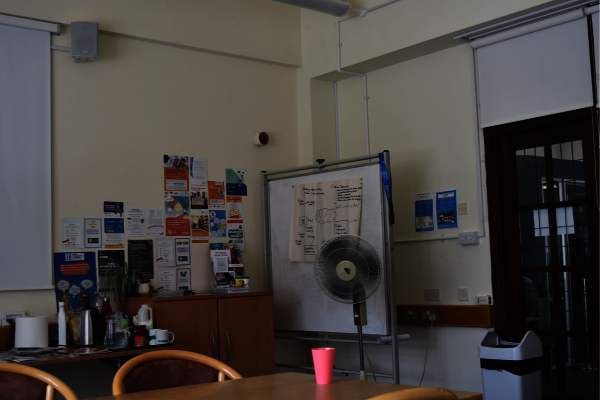Age-friendly case study: Sefton’s older people at the heart of partnership working

Sefton, a borough within the Liverpool City Region, is working progressively with members of its neighbourhoods to help make the area more age-friendly.
In 2018, Sefton joined the World Health Organisation (WHO) Global Network of Age-friendly Cities and Communities. Sefton’s aim was to use the age-friendly framework to build on existing partnership working in the borough, to address issues faced by some older residents such as loneliness, low fixed incomes, and substandard housing.
Sefton’s Older People’s Strategy (2019-2024) shows that older people are working to improve health, care, and housing, and improve transport, communication, and access to information. This strategy links closely to the borough’s 2030 vision which guides long-term planning. The overall goal is to create an environment where people get involved, develop their own solutions, and help one another.
There is also a thriving voluntary and community sector in Sefton, with many opportunities for older people to participate. The charity Sefton Advocacy is the lead organisation for Sefton’s age-friendly work, facilitating six area-based Older Persons’ Forums across the borough, where older people can meet and take part in decision- making.
With a local network of over 400 older people, these groups shaped, and are helping to implement, the Older People’s Strategy. Members of the Older Persons’ Forums make up a borough-wide partnership, Sefton Partnership for Older Citizens (SPOC).
Sefton’s older people at the heart of partnership working: An Age-friendly communities case study
Working together for changes to Hillside Station
In 2018 the Department for Transport announced ‘Access for All Programme’, a £300million fund to provide step-free access for passengers at rail stations. Hillside Station was identified by Merseytravel as a station which would need further modernisation.
With no lift at the station, the platforms are reached by 32 steep steps making it difficult for many people to access, including local residents. While some people can use stations further away instead, many older residents are excluded from the train network.
Making the case for this funding had Merseytravel draw on its involvement with SPOC to gather local testimonies. The older representatives and forum members went a step further, initiating a peer consultation with neighbours, friends and other groups they were part of, to ensure a diverse range of experiences were included as they knew this was a chance to make Hillside station usable for many. Two key findings were: passengers wanted to see all stations made accessible, and many passengers felt long ramps could be a barrier to access.
The strength of local support enabled Merseytravel to make a successful bid for funding two new lifts at Hillside Station. The work is due to begin in 2021 and when completed the station will be fully accessible. This will increase independence and expand opportunities for local residents.
Having lifts and level access on to the trains gives me the independence to travel like everyone else, without depending on other people for help or having to let them know in advance.
The partnership between the Sefton and the Liverpool City Region Combined Authority has since developed further with SPOC now represented on the Age Friendly Liverpool City Region Steering Group. Locally and across the city region the experiences and perspective of older people will continue to inform and support age-friendly improvements.
This development brings a wider strategic focus and broader scope to the relationship beyond transport that includes housing and spatial planning, jobs and skills, digital connectivity, culture and the environment.
This story is abridged. To read the full version of this case study, download the print-friendly PDF above.


